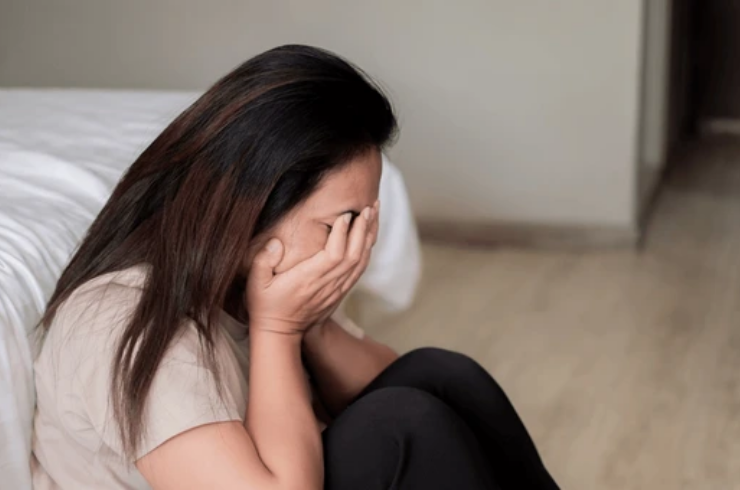Introduction
Anxiety disorders are a prevalent mental health condition affecting millions worldwide. At Ahmedabad Psychiatry Clinic, located in Ahmedabad, India, we specialize in diagnosing and treating anxiety disorders, offering personalized care to help individuals manage and overcome their symptoms. This article aims to provide a comprehensive understanding of anxiety disorders, their types, symptoms, causes, and available treatment options.
Types of Anxiety Disorders
Generalized Anxiety Disorder (GAD)
Individuals with GAD experience chronic and excessive worry about various aspects of life, such as health, work, and social interactions. This worry is often disproportionate to the actual situation and can interfere with daily activities.
Panic Disorder
Panic disorder is characterized by recurrent, unexpected panic attacks—sudden periods of intense fear or discomfort accompanied by physical symptoms like heart palpitations, sweating, and shortness of breath.
Social Anxiety Disorder (SAD)
Also known as social phobia, SAD involves an intense fear of social situations where one might be judged, embarrassed, or scrutinized by others. This fear can lead to avoidance of social interactions and impact personal and professional life.
Specific Phobias
Specific phobias are intense, irrational fears of particular objects or situations, such as heights, animals, or flying. Exposure to the feared object or situation can trigger severe anxiety and avoidance behavior.
Obsessive-Compulsive Disorder (OCD)
OCD is characterized by persistent, unwanted thoughts (obsessions) and repetitive behaviors or mental acts (compulsions) performed to alleviate the distress caused by these thoughts.
Post-Traumatic Stress Disorder (PTSD)
PTSD develops after experiencing or witnessing a traumatic event. Symptoms include flashbacks, nightmares, severe anxiety, and uncontrollable thoughts about the event.
Symptoms of Anxiety Disorders
Common symptoms of anxiety disorders include:
- Excessive worry or fear
- Restlessness or feeling on edge
- Fatigue
- Difficulty concentrating
- Irritability
- Muscle tension
- Sleep disturbances
- Avoidance of feared situations
Causes of Anxiety Disorders
The exact cause of anxiety disorders is not fully understood, but a combination of factors is believed to contribute to their development:
- Genetics: Anxiety disorders often run in families, suggesting a genetic predisposition.
- Brain Chemistry: Imbalances in neurotransmitters, such as serotonin and dopamine, play a role in anxiety disorders.
- Environmental Factors: Stressful life events, trauma, and prolonged exposure to stressful situations can trigger anxiety disorders.
- Personality Traits: Individuals with certain personality traits, such as being overly cautious or perfectionistic, may be more prone to developing anxiety disorders.
Diagnosis of Anxiety Disorders
At Ahmedabad Psychiatry Clinic, located in Ahmedabad, India, our experienced psychiatrists use a comprehensive approach to diagnose anxiety disorders. The process typically involves:
- Medical History and Physical Exam: A thorough medical history and physical examination help rule out other conditions that may cause similar symptoms.
- Psychological Evaluation: A detailed assessment of the patient’s symptoms, thoughts, and behaviors is conducted through structured interviews and questionnaires.
- Diagnostic Criteria: The diagnosis is based on criteria outlined in the Diagnostic and Statistical Manual of Mental Disorders (DSM-5), published by the American Psychiatric Association.
Treatment Options for Anxiety Disorders
Effective treatment for anxiety disorders often involves a combination of therapies tailored to the individual’s needs:
- Psychotherapy: Cognitive-behavioral therapy (CBT) is the most common form of psychotherapy for anxiety disorders. It helps individuals identify and change negative thought patterns and behaviors that contribute to anxiety.
- Medications: Several types of medications can be prescribed to manage anxiety symptoms, including:
- Antidepressants (e.g., SSRIs, SNRIs)
- Benzodiazepines (short-term use for acute anxiety)
- Beta-blockers (for physical symptoms of anxiety)
- Lifestyle Changes: Incorporating lifestyle changes, such as regular exercise, a healthy diet, adequate sleep, and stress management techniques, can significantly improve anxiety symptoms.
- Mindfulness and Relaxation Techniques: Practices such as meditation, yoga, and deep breathing exercises help reduce stress and promote relaxation.
- Support Groups: Joining support groups can provide a sense of community and shared experiences, helping individuals feel less isolated.
Prevention of Anxiety Disorders
While it may not be possible to prevent anxiety disorders entirely, certain strategies can reduce the risk of developing them:
- Managing Stress: Learning to manage stress through relaxation techniques, time management, and setting realistic goals can help prevent anxiety.
- Building Strong Social Connections: Maintaining healthy relationships and seeking support from friends and family can provide emotional stability.
- Seeking Early Treatment: Addressing anxiety symptoms early and seeking professional help can prevent the condition from worsening.
Living with Anxiety Disorders
Living with anxiety disorders can be challenging, but with the right support and treatment, individuals can lead fulfilling lives. At Ahmedabad Psychiatry Clinic in Ahmedabad, India, our team is dedicated to providing compassionate care and effective treatment options for anxiety disorders. Here are some tips for managing anxiety in daily life:
- Stay Active: Regular physical activity can help reduce anxiety by releasing endorphins, which improve mood and energy levels.
- Practice Mindfulness: Mindfulness practices, such as meditation and deep breathing exercises, can help individuals stay grounded and reduce anxiety.
- Maintain a Healthy Lifestyle: Eating a balanced diet, getting enough sleep, and avoiding excessive caffeine and alcohol can positively impact anxiety levels.
- Seek Support: Connecting with others who understand your experiences, whether through support groups or therapy, can provide valuable emotional support.
- Set Realistic Goals: Setting achievable goals and breaking tasks into smaller steps can prevent feeling overwhelmed and reduce anxiety.
- Limit Exposure to Stressors: Identifying and limiting exposure to triggers or stressful situations can help manage anxiety symptoms.


